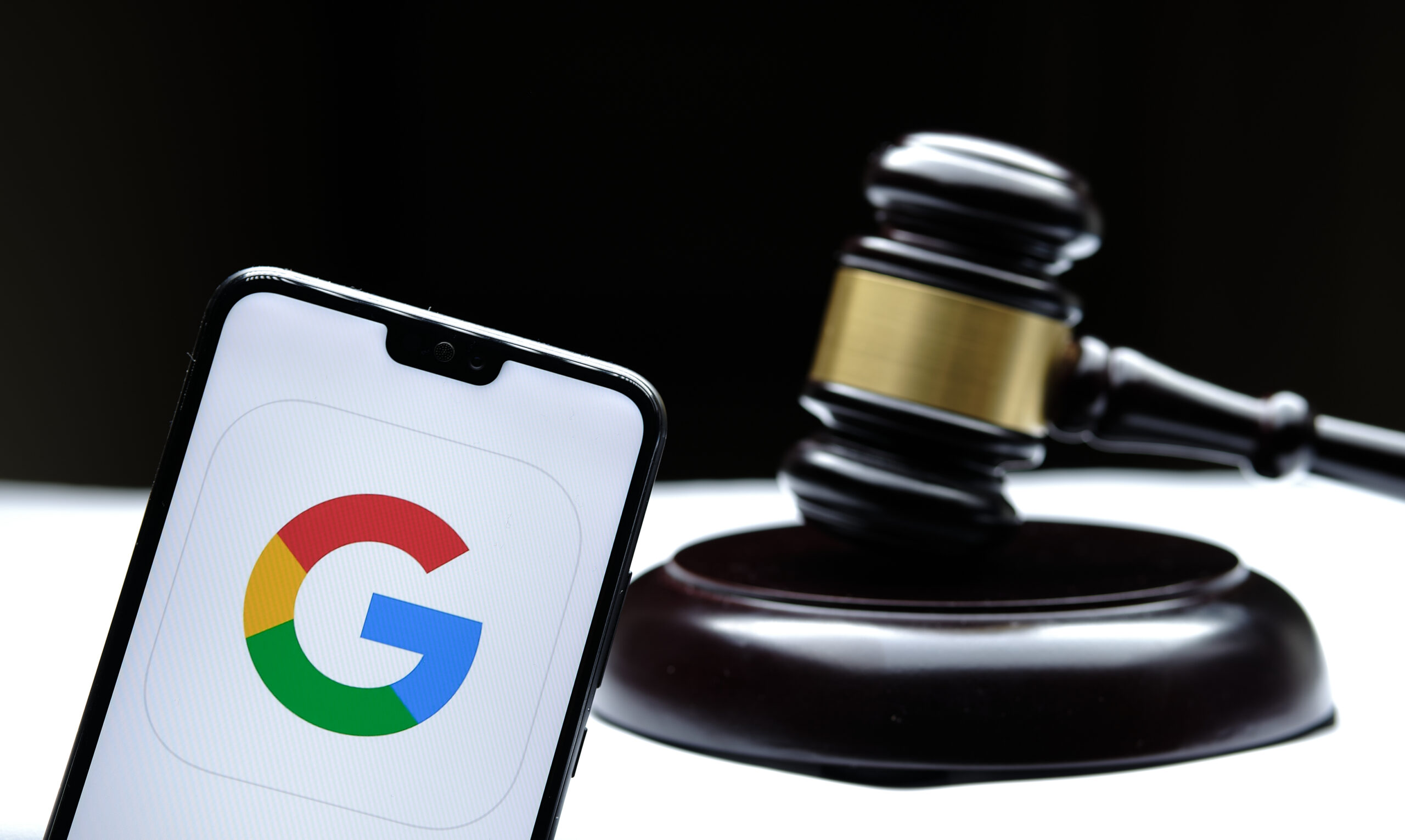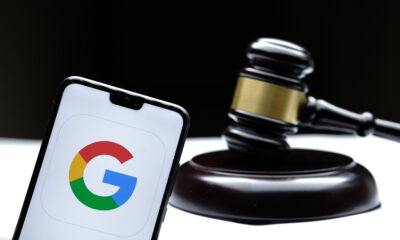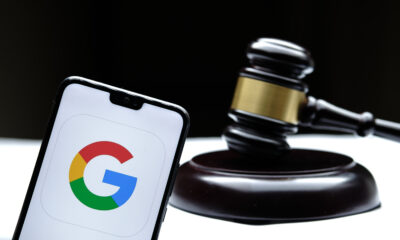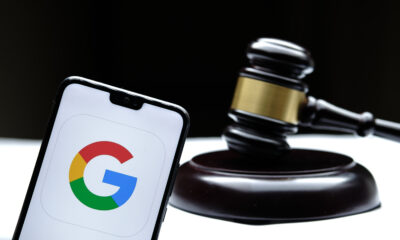Business
Google Avoids Breakup as Court Mandates Data Sharing Changes

A landmark ruling from the US Federal Court has spared Google from a breakup, opting instead for behavioral modifications to ensure competition in the search engine market. On October 30, 2023, Judge Amit P Mehta rejected the Department of Justice’s (DOJ) request to dismantle Google’s core businesses, allowing the tech giant to retain its Chrome and Android platforms. The decision acknowledges the rise of artificial intelligence (AI) as a significant competitive force in the tech landscape.
Judge Mehta’s ruling, delivered in a 230-page opinion, came during a pivotal antitrust case that began with the DOJ’s accusations against Google in 2020. The DOJ claimed that Google maintained monopolistic practices through exclusive agreements valued at over $26 billion annually. Although the court found Google liable in August 2024, the remedies focused on behavioral changes rather than structural disbandment.
In his ruling, Judge Mehta stated, “Google will not be required to divest Chrome; nor will the court include a contingent divestiture of the Android operating system in the final judgment.” This decision preserves one of the tech industry’s most lucrative arrangements, allowing Google to continue compensating Apple for its default search placement.
Data Sharing Requirements Introduced
While avoiding a breakup, the court mandated that Google share search data with its competitors to foster a more competitive environment. Judge Mehta emphasized the need for Google to make certain search index and user-interaction data available to “Qualified Competitors.” This data includes essential elements like web page identifiers and crawl schedules, which could aid rivals in enhancing their search capabilities.
In response to the ruling, Lee-Anne Mulholland, Google’s Vice President of Regulatory Affairs, expressed concerns regarding the implications of the new data-sharing requirements. “The Court has imposed limits on how we distribute Google services, and will require us to share Search data with rivals,” she noted in a statement. “We’re reviewing the decision closely,” she added, highlighting potential impacts on user privacy and overall service distribution.
The court’s decision to focus on data sharing rather than divestiture represents a significant shift in the approach to regulating tech giants. Sanchit Vir Gogia, Chief Analyst at Greyhound Research, cautioned that while data-sharing could diminish barriers to entry for competitors, it may not replicate the disruptive potential of a breakup. He warned that the six-year term for these remedies might not align with the fast-paced evolution of technology, stating, “A six-year horizon epitomizes the mismatch between legal cadence and AI’s tempo.”
Continued Partnership with Apple
The ruling also upheld Google’s financial arrangements with Apple, rejecting the DOJ’s proposal to ban payments made for default search placements. In 2022, these payments reached approximately $20 billion, effectively discouraging Apple from developing its own search engine. Judge Mehta concluded that stopping these payments could lead to “substantial — in some cases, crippling — downstream harms to distribution partners, related markets, and consumers.”
The partnership remains crucial for both companies, as it significantly impacts the competitive landscape. Judge Mehta referenced testimony from Eddy Cue, an Apple executive, which illustrated how these financial incentives hindered Apple from launching its own search platform. This aspect of the case further underscores the complex interplay between major tech companies and the challenges regulators face in promoting competition.
Despite the court’s recognition of anticompetitive effects, the decision reflects an understanding of the broader market dynamics. Google argued that the emergence of AI has transformed how users search for information, stating, “The industry has changed through the advent of AI, which is giving people so many more ways to find information.”
The ruling explicitly recognizes AI companies, such as OpenAI, Anthropic, and Perplexity, as potential competitors in the search market. This acknowledgment indicates a shift in the court’s perspective regarding the competitive landscape, as Judge Mehta noted that AI had not been a significant focus during the initial trial but became central to discussions about remedies.
In conclusion, this ruling represents a critical juncture in the ongoing battle over digital monopolies. By choosing behavioral remedies over divestiture, the court aims to strike a balance between regulatory oversight and maintaining a competitive market environment. The implementation of the data-sharing requirements will commence in 60 days, with a Technical Committee overseeing the process, marking a new chapter in how competition is fostered in the tech industry.
-

 Sports1 month ago
Sports1 month agoNetball New Zealand Stands Down Dame Noeline Taurua for Series
-

 Entertainment1 month ago
Entertainment1 month agoTributes Pour In for Lachlan Rofe, Reality Star, Dead at 47
-

 Entertainment1 week ago
Entertainment1 week agoNew ‘Maverick’ Chaser Joins Beat the Chasers Season Finale
-

 Sports1 month ago
Sports1 month agoSilver Ferns Legend Laura Langman Criticizes Team’s Attitude
-

 Entertainment2 months ago
Entertainment2 months agoKhloe Kardashian Embraces Innovative Stem Cell Therapy in Mexico
-

 Sports2 months ago
Sports2 months agoGaël Monfils Set to Defend ASB Classic Title in January 2026
-

 World3 months ago
World3 months agoPolice Arrest Multiple Individuals During Funeral for Zain Taikato-Fox
-

 Politics2 weeks ago
Politics2 weeks agoNetball NZ Calls for Respect Amid Dame Taurua’s Standoff
-

 Entertainment3 weeks ago
Entertainment3 weeks agoTyson Fury’s Daughter Venezuela Gets Engaged at Birthday Bash
-

 Sports3 weeks ago
Sports3 weeks agoHeather McMahan Steps Down as Ryder Cup Host After Controversy
-

 Entertainment3 weeks ago
Entertainment3 weeks agoTyson Fury’s Daughter Venezuela Gets Engaged at Birthday Bash
-

 World3 weeks ago
World3 weeks agoNew Zealand Firefighters Plan Strike on October 17 Over Pay Disputes

















